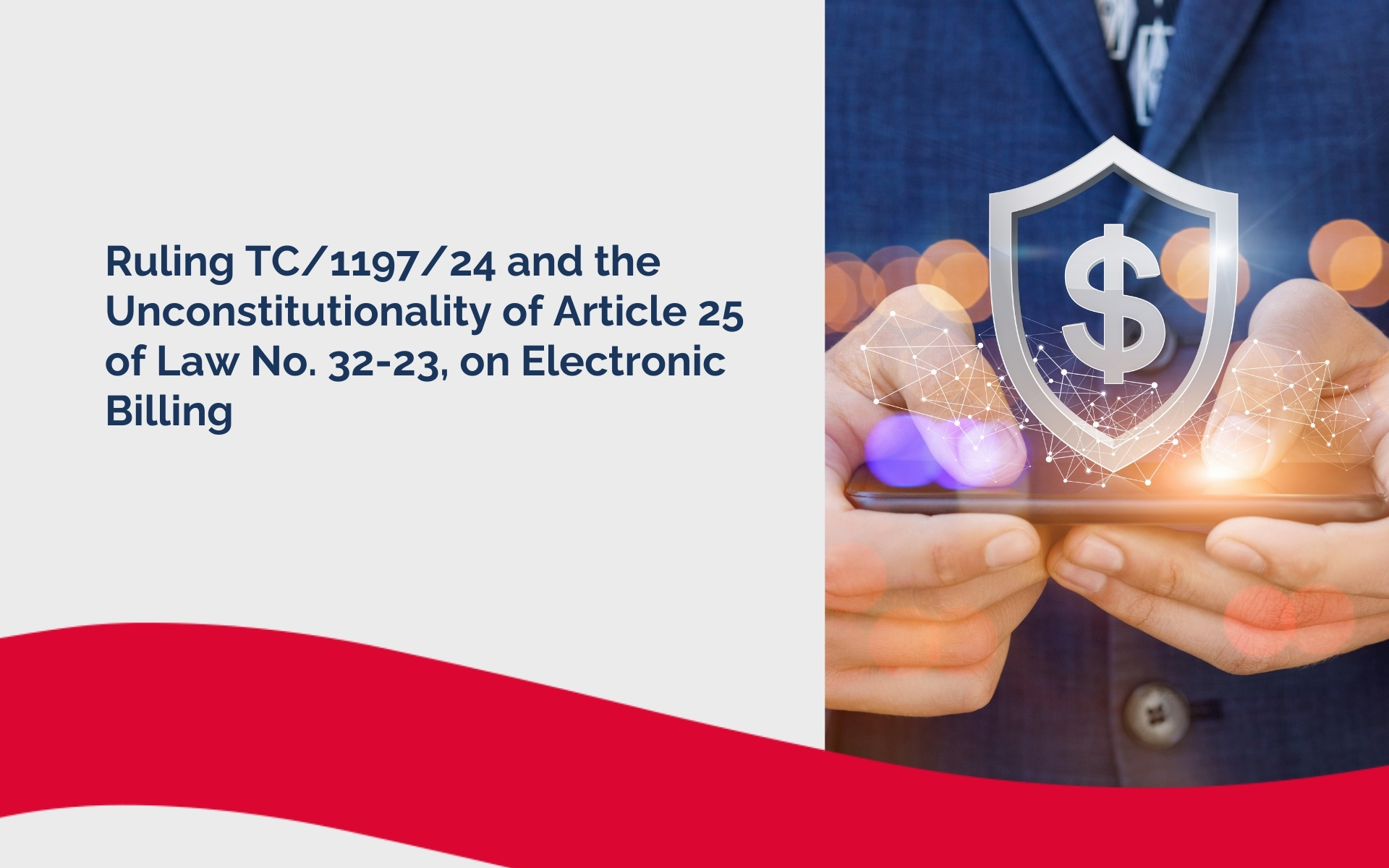
Ruling TC/1197/24 and the Unconstitutionality of Article 25 of Law No. 32-23, on Electronic Billing
I. What Was This Case About?
On October 4, 2023, the nonprofit organization Entrepreneurs United for Development and Freedom (EMUDELI), Inc. filed a direct action of unconstitutionality before the Constitutional Court of the Dominican Republic against Articles 7 and 25 of Law No. 32-23 on Electronic Billing, enacted on May 16, 2023.
Article 25 of the law states the following:
“Art 25 – Financial and securities intermediation entities in the Dominican Republic, when issuing financial products other than savings, must request from the General Directorate of Internal Taxes (DGII) a risk certification of the recipient of said product, which must state the total amount and volume of invoiced transactions over a given period.”
This article seeks to ensure that banks request a “risk certification” from the DGII before granting any financial products to their customers other than those meant for savings. Through this certification, the DGII would disclose, as a minimum, how much an individual or company has billed over a specific period. In other words, banks would not be able to approve certain loans or financial products without first receiving the fiscal information about the potential client, thus directly linking access to financing with the applicant’s billing history at the DGII.
EMUDELI argued that these provisions violated constitutional principles such as reasonability, the right to equality, the right to a defense, human dignity, privacy, personal honor, and freedom of enterprise.
As a result of the action filed by EMUDELI, the Constitutional Court issued Judgment TC/1197/24 on December 30, 2024. Below, we briefly explore the analysis conducted by the Court regarding the contested article, as well as the final ruling.
II. Constitutional Court’s Reasoning
The Constitutional Court examined the constitutionality of Article 25 of the Electronic Billing Law and determined the following:
- Lack of Specificity and Violation of Privacy: The Court found that Article 25 lacked specificity regarding the information to be included in the tax risk certification, thereby granting the DGII the power to provide banks with unrestricted information about taxpayers, infringing on their right to privacy.
- Reasonability Principle: According to the Court, the provision in Article 25 did not comply with the reasonability principle established in Article 40.15 of the Constitution, which states that laws may only mandate what is just, useful, and beneficial to the community. The Court concluded that Article 25 did not contribute to improving the Dominican tax system, electronic billing, or the general public. Instead, the provision only benefited financial intermediation entities, as it gave them unrestricted access to taxpayers’ economic activity data to refine their risk indicators.
- Lack of Connection with the Law’s Intended Purpose: The Court determined that the tax risk certification had no relation whatsoever to the objectives of the Electronic Billing Law, as none of its other provisions referred to strengthening the Dominican banking system. Consequently, this provision distorted and disconnected the law from its intended purpose.
III. The Court’s Decision
Given the violation of the right to privacy and the reasonability principle, the Court upheld the unconstitutionality action and declared Article 25 of Law No. 32-23 null and void.
The Constitutional Court’s decision seeks to reaffirm the protection of taxpayers’ privacy and the reasonability principle as fundamental pillars of the Dominican legal system. By invalidating Article 25, the Court aims to prevent financial entities from unrestrictedly accessing citizens’ tax information and ensure that any future legislation mandating the disclosure of such information meets the specificity and reasonability requirements that should characterize all laws in the country.
Miguel Eduardo Gil Molina
Andrea Jacobo Ricart